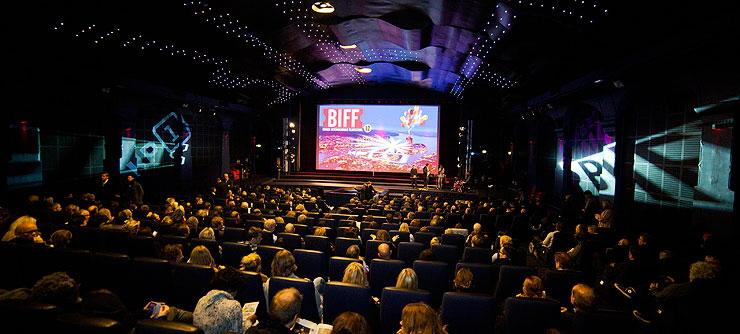In the ever-evolving landscape of cinema, film festivals have long been heralded as the ultimate arbiters of excellence, offering a prestigious platform for filmmakers to showcase their craft. Yet, beneath the glitz and glamour lies a pressing question: do these celebrated events genuinely spotlight the best the industry has to offer, or do they merely reflect a curated vision shaped by market trends and insider politics? This article delves into the intricate dynamics of film festivals, examining their criteria for selection, the influence of industry gatekeepers, and the extent to which they align with or diverge from broader cinematic innovation. Through an analytical lens, we aim to uncover whether these cultural beacons are truly illuminating the pinnacle of filmmaking or casting a selective glow that obscures a more diverse array of talent.
Evaluating the Selection Process and Its Impact on Quality
The selection process at film festivals is a crucial determinant of the films that gain international recognition and prestige. Curators and juries are tasked with sifting through countless submissions, each vying for a spot in the coveted lineup. This process, while thorough, is not without its challenges and biases. Factors such as cultural trends, political climates, and jury composition can influence which films are chosen. Often, the selection leans towards those that align with the festival’s ethos or current societal narratives, potentially sidelining innovative works that don’t fit the mold.
Moreover, the impact on quality is multifaceted. On one hand, festivals elevate films by providing a platform for exposure, distribution deals, and critical acclaim. On the other, the competitive nature may lead to a homogenization of content, where filmmakers tailor their work to meet perceived festival criteria. Considerations include:
- Genre Preferences: Certain genres, such as dramas or social commentaries, may be favored over others.
- Narrative Structures: Films with traditional storytelling might be prioritized over experimental forms.
- Industry Connections: Established directors or those with industry ties might have an edge.
While film festivals strive to showcase the pinnacle of cinematic art, the selection process inevitably shapes the definition of “best,” influencing both current and future trends in the industry.

Analyzing Jury Composition and Its Influence on Festival Outcomes
The composition of a film festival jury can significantly impact the outcomes, as diverse backgrounds and preferences shape their judgments. A jury’s professional experience and cultural perspectives often influence their evaluation criteria, potentially skewing the selection process. While some jurors may prioritize technical prowess, others might value narrative innovation or social relevance. This diversity can either enrich the festival by showcasing a variety of styles or create inconsistency in award distribution.
Considerations for a balanced jury include:
- Inclusivity of different film genres: Ensures that a wide range of cinematic expressions is recognized.
- Varied cultural representation: Encourages a broader appreciation for international films.
- Professional diversity: Involvement of critics, filmmakers, and academics to offer multiple viewpoints.
Ultimately, the jury’s composition can either uphold the festival’s integrity by fairly representing the industry’s best or inadvertently bias the results, reflecting the subjective tastes of a select few.

Exploring the Role of Networking and Industry Politics
Film festivals, often seen as the pinnacle of cinematic celebration, have a complex ecosystem where networking and industry politics play pivotal roles. The intricate dance of connections and influence can sometimes overshadow pure artistic merit. Industry insiders, seasoned producers, and established directors often have the upper hand, leveraging their networks to secure coveted slots in festival lineups. This creates an environment where the visibility of a film can be as much about who you know as it is about the quality of the work itself.
- Insider Influence: Festival programmers may be swayed by industry relationships, leading to selections that favor established connections.
- Networking Events: Parties and panels serve as crucial platforms for filmmakers to build relationships, often impacting future festival opportunities.
- Power Dynamics: The role of powerful agents and production companies can tilt the scales, ensuring that their projects receive priority consideration.
While these dynamics do not diminish the value of festivals, they underscore the importance of understanding the behind-the-scenes mechanics. To truly showcase the best in cinema, festivals must strive for transparency and inclusivity, balancing the scales between artistic talent and industry influence.
 Film Festivals“>
Film Festivals“>
Recommendations for Enhancing Fairness and Diversity in Film Festivals
To foster an inclusive environment that truly represents the industry’s diverse talent, film festivals must implement strategies that prioritize both fairness and diversity. Here are several key recommendations:
- Transparent Selection Processes: Festivals should establish clear, unbiased criteria for film selection. This includes a diverse selection committee that can provide varied perspectives and minimize biases.
- Spotlight Underrepresented Voices: Creating dedicated categories or sections for films by marginalized groups can help ensure their stories are highlighted. This approach not only encourages participation but also attracts a wider audience.
- Partnerships and Collaborations: Working with organizations that focus on diversity in the arts can provide valuable insights and resources, aiding festivals in crafting more inclusive programs.
- Workshops and Panels: Hosting events that discuss diversity and representation in film can educate both filmmakers and audiences, fostering a community committed to equitable practices.
By adopting these practices, film festivals can play a pivotal role in amplifying diverse voices and ensuring a fair representation of talent across the industry.

